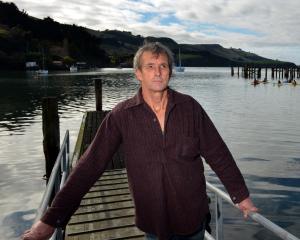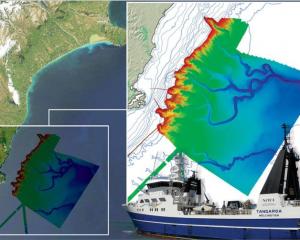It was the first day of a hearing expected to take up to three weeks, into Port Otago's resource consent applications to dredge Otago Harbour to allow for larger vessels and the growth in export volumes.
Port Otago's counsel Len Andersen told the independent hearing panel that over the next week, evidence would be given detailing that the adverse effects of the project would be appropriately managed.
The project was essential to Port Otago and the local community but Port Otago did not rely on that fact alone, he said.
"[It] has taken seriously its obligations to avoid, remedy and mitigate environmental effects of the project."
The environmental plan recognised that active management was required to remedy the situation if environmental effects of activities were greater than anticipated. Management would occur before effects were at such levels where they could harm the environment, he said.
Port chairman David Faulkner said the port would demonstrate that effects on the environment, other commercial and recreational users of the harbour and the community, had been thoroughly assessed and were proposed to be responsibly managed through all phases of the development.
Port chief executive Geoff Plunket said it was essential for Dunedin and the lower half of the South Island that Port Otago remained a strong and significant part of New Zealand's international supply chain.
"As timing of larger vessels is uncertain, it is important that Port Otago has flexibility to be able to deepen and widen the lower harbour shipping channel in line with commercial demand."
Putting in place the resource consents for the long-term development was of "critical importance" for the ongoing development of the port, Mr Plunket said.
Port general manager infrastructure Lincoln Coe said the company had been very careful to design a channel alignment that was both safe and efficient from a ship handling perspective and also minimised effects on harbour ecology and other users.
"I am satisfied that the project has been developed in accordance with best international practice and it will be implemented in a way that provides for long-term sustainability of the environment, community and port," he said.
The hearing continues today with further evidence from Port Otago.
PORT OTAGO HEARING
Panel: John Lumsden (chairman), Hugh Leersnyder, Dr Mike Johnston.
Where: Otago Regional Council, Dunedin.
Proposal:
• Upgrade channel, berth and swinging areas, disposing 7.2 million cu m at sea.
• Extend multipurpose wharf by 135m.
• Construct fishing wharf at end Boiler Pt walkway.
Day 1
Giving evidence yesterday: Port Otago counsel Len Andersen, Port Otago chairman David Faulkner, chief executive Geoff Plunket, general manager infrastructure Lincoln Coe.





